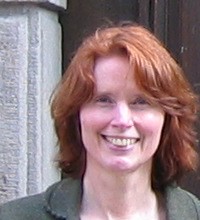In class on Wednesday you wrote some reflections on the course. To those of you who answered all those questions and sent them to me - thank you for your feedback. I have lots to think about and you gave me some sound ideas for "tweaking" the presentation of this course. Really though, I think what made this course so successful was in a large part due to the openness and interest you brought into the room. I will always remember this course as a remarkable experience - I wept over your papers, came close to tears in our conferences - and was awed by how well you used your writing to move through the material that prompted all those emotions in me. Thank you. And who knows - maybe I will write an essay about it!
Turning in your workI will be reading through the last blogs this weekend and on Monday I will be in my office from 9:30 - 3:30 to work with you to burn your portfolio CDs or anything else you want to work on. Unless you have made a different arrangement with me, your portfolio is due by 3:30 on Monday.
GradesThe points for writing were listed on the syllabus as:
Writing projectsDrafts + revised personal essay = 150 points
Drafts + revised essay on place/object or person = 150 points
Drafts for reflective essay on writing = 100 points
Portfolio (includes finished writing for two essays + reflective piece)=200 points
As you know, you did not write the reflective essay, so I am revising the scoring as follows:
Drafts + revised personal essay = 150 points
Drafts + revised essay on place/object or person = 150 points
Final revised essay + publication venue selection = 150 points
Portfolio (overall assessment of presentation of materials, quality of writing, completeness + organization for portfolio contents)= 150 points
The process for giving credit for the blog and participation will remain the same.
As soon as I finish looking through your portfolios, I will send you a grade sheet. Anyone whose CD was blank or who was missing a major assignment will then have the opportunity to re-submit. I will submit your grades (as listed on the gradesheets) on Keanwise 48-hours after I send you the grade sheets. That way, if I hear from individuals with missing material - or if I added something up wrong or left something out - I can re-calculate the grade before submitting it on Keanwise. After grades are submitted on Keanwise - that's the grade you get unless you choose to appeal.
You did some wonderful writing this term, and I am looking forward to reading your final revisions.
